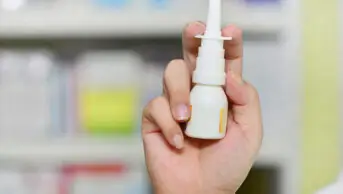
Shutterstock.com
We can improve safety through technological innovation and cooperation between healthcare professionals. On 29 November 2017, I addressed the Royal Pharmaceutical Society’s (RPS) Wales Medicines Safety Conference at the Vale Resort, near Cardiff, about how we can do this.
Taking action against medicines-related harm is not an issue unique to Wales. The World Health Organization (WHO) recognises that medication practices and medication errors are a leading cause of avoidable harm in healthcare systems across the world. The WHO’s recently issued third global patient safety challenge, Medication Without Harm, has the explicit aim of reducing the level of severe avoidable harm related to medications by 50% by 2022.
Medicines safety is rightly an area of concern, and at last year’s event I talked about how we are improving safety and reducing harm, including:
- The important work of medication safety officers;
- The increased reporting of suspected drug reactions through the Medicine and Healthcare products Regulatory Agency’s Yellow Card Scheme;
- Developing a community pharmacy contractual framework that places an increased emphasis on improving medication safety and service quality;
- And using information technology to improve safety for all patients taking medicines.
We continue to make significant progress and I am pleased that the RPS continues to champion and recognise improvements in medication safety, and that it does this through a medication safety conference that makes its home in Wales.
In the Welsh Government’s programme for government ‘Taking Wales Forward’, we set out our commitment to seeing new, innovative, life-changing medicines and technologies brought into routine use promptly and more consistently.
New medicines can harm as well as heal
Over the life of this government, we are committed to investing £80m in our New Treatment Fund. Launched in January 2017, the fund underpins our evidence-based approach to securing access to new medicines. It has shortened the period in which new medicines must be made available where clinically appropriate, and ensured access to new medicines that offer real benefit for people suffering from life-threatening diseases for which there are often limited or no alternative treatment options.
Expediting access to medicines that prolong life and cure disease is an important step in improving health outcomes, but we must be mindful that medicines, new and old, are associated with harm as well as benefit — particularly when medicines are used inappropriately or where they are prescribed in combination with many others. All healthcare professionals, but especially pharmacists with their expertise in medicines use, have a critical role in ensuring that safety is promoted and harm is minimised wherever medicines are prescribed, dispensed or administered.
Innovation is not just about making new technologies available. It is also about changing the way we do things. Since 2015, we have advocated change through our prudent approach to delivering healthcare services; co-producing new models of care through partnerships between professionals and patients; prioritising care for those with greatest need; minimising harm through stopping unnecessary and ineffective interventions; and using evidence to reduce inappropriate variation.
Personalised treatment reduces risk
Change will play a key role in addressing the challenges faced by the NHS and is central to our prudent approach. Change can come in many forms; from individual professionals implementing great ideas for improved services and better care to scientific or technological advances allowing treatment to be targeted and personalised, reducing risk and harm.
This year’s medicines safety conference covers not only local examples of excellent and innovative practice, but also leadership, learnings from other industries, and the personal resilience and future workforce necessary to bring transformational change and improvements in outcomes.
Good progress is being made in healthcare in Wales.
In primary care’s emerging workforce model, we continue to see more pharmacists working directly in general practice. The impact of clinical pharmacists reviewing, starting, and, perhaps more significantly, stopping medication on improving the quality of prescribing and reducing the burden on GPs is considerable. We are improving communication — and patient care — by bringing GPs, nurses, pharmacists and increasingly other professionals like physiotherapists and paramedics into multidisciplinary general practice teams.
Information-sharing is critical to improving patient safety both within practices and between care settings. Evidence tells us that 30%–70% of patients have either an error or an unintentional change to their medicines when their care is transferred[1]
.
Wales’s Medicines Transcribing and e-Discharge (MTeD) system is helping to address the risks associated with transfers of care. MTeD not only replaces a time-consuming and bureaucratic paper-based process that results in patients being discharged long before their discharge advice note reaches their GP, but also enables a new way of multidisciplinary working. Electronic information is recorded and shared from the point of hospital admission, throughout the patient journey to post discharge.
E-discharge speeds communication
We are seeing tangible benefits; for example, in some MTeD wards in Ysbyty Gwynedd, 96% of e-discharge information has reached the GP within seven days, while only 6% of paper discharges achieved the seven-day target.
Implementation of MTeD is underway in five health boards, and there are plans to implement the process in Velindre Cancer Centre, Abertawe Bro Morgannwg University and Aneurin Bevan University Health Boards.
The system can now import medications data from the GP clinical systems, allowing hospital clinicians and pharmacists to see a more rounded picture of a patient’s condition. It prevents re-keying of data, saves time and further reduces the risk of error.
When I spoke at last year’s conference, I committed to better availability and use of information technology in community pharmacy through the roll-out of the Choose Pharmacy IT system to half of community pharmacies by March 2018. I was delighted to inform this year’s conference delegates that not only has the NHS Wales Informatics Service met that target ahead of schedule, but it has also made progress in other areas.
Further modules to support the provision of the emergency medicine supply service and flu vaccination by pharmacists have been deployed. Roll-out is continuing in 60% of community pharmacies in Wales and pharmacies in every health board in Wales will be able to access the system. Additional investment has also been secured to develop and pilot a test-and-treat module for diagnosis and management of bacterial throat infections by community pharmacists in which the NHS Wales Informatics Service will pilot electronic transfer of records from pharmacies to GPs.
While sharing pharmacy records with GPs will improve safety, there are equal, if not greater, benefits of sharing information with pharmacists.
First pilot of pharmacist access to summary care record
In November 2016, I announced that the Welsh GP record, a summary of key information from a patient’s GP record, would be available electronically for doctors, pharmacists and pharmacy technicians in planned as well as unscheduled secondary care services. That change means that vital information is now routinely available regardless of how a patient comes into our hospitals, 24 hours a day, every day of the year.
The first pilot of community pharmacist access to the Welsh GP record will go live in four pharmacies in the week commencing 11 December 2017. If it is successful it will be extended to all pharmacies with access to the Choose Pharmacy IT system and providing the national emergency medicine supply service from March 2018.
We are making great strides in the infrastructure required to improve medicines safety in Wales, but, inevitably, there is more to do.
Harm related to inappropriate, unsafe and unwarranted prescribing, dispensing and taking of medicines has an unacceptable and often avoidable impact on the care the NHS provides. Bringing healthcare professionals together to discuss these issues is critical to resolving them.
References
[1] Royal Pharmaceutical Society. Hospital referral to community pharmacy: an innovator’s toolkit to support the NHS in England. Available at: https://www.rpharms.com/Portals/0/RPS%20document%20library/Open%20access/Support/toolkit/3649—rps—hospital-toolkit-brochure-web.pdf (accessed November 2017)


